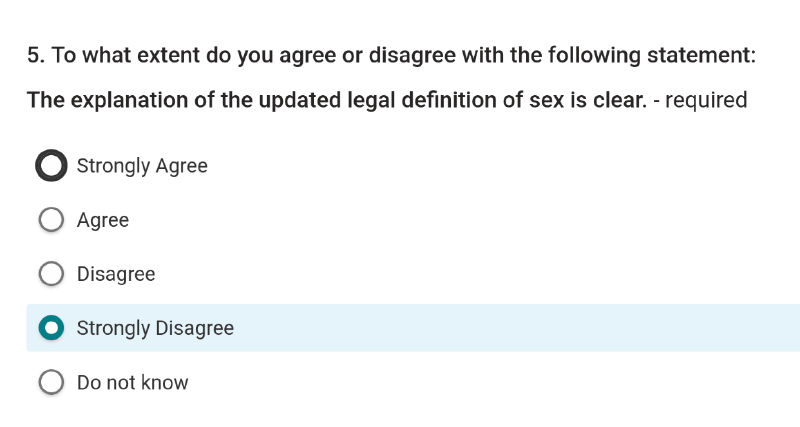In the UK, would-be Bottom Inspectors are having a bit of a moment right now after our highest legal institution decided to make Gender Recognition Certificates for trans folk essentially meaningless. The erstwhile and totally unbiased Equality and Human Rights Commission (EHRC) is required to provide guidance on such matters, which they are looking for feedback on.
Maybe you have some feedback for the EHRC? Ha! I’m kidding - of course you have some feedback for them. The EHRC consultation is open until June 30th 2025. I’m sure they would just love to hear from you.
Here’s the feedback I sent them, which made me feel better for a little while…

The Gender Recognition Act 2004 says that
Where a full gender recognition certificate is issued to a person, the person’s gender becomes for all purposes the acquired gender (so that, if the acquired gender is the male gender, the person’s sex becomes that of a man and, if it is the female gender, the person’s sex becomes that of a woman).
(Consequences of issue of gender recognition certificate etc, section 9, point 1)
Whilst the Gender Recognition Act clearly states what the GRC represents and its intended purpose, in 2025 the Supreme Court decided that this should be replaced with something they call certificated sex. Certificated sex is a new status that applies to someone who has been issued with a GRC.
357 democratically elected MPs voted for the GRA, which passed with a majority of 309, whereas the Supreme Court is appointed rather than elected. To date, there has been no democratic vote on “certificated sex”, and it is possible that the Supreme Court ruling might be overturned via Parliamentary Sovereignty.
Respond to the EHRC consultation[ UK law is a bit complex due to devolution and delegated authority, so please excuse my oversimplification in the interest of making a point ]
